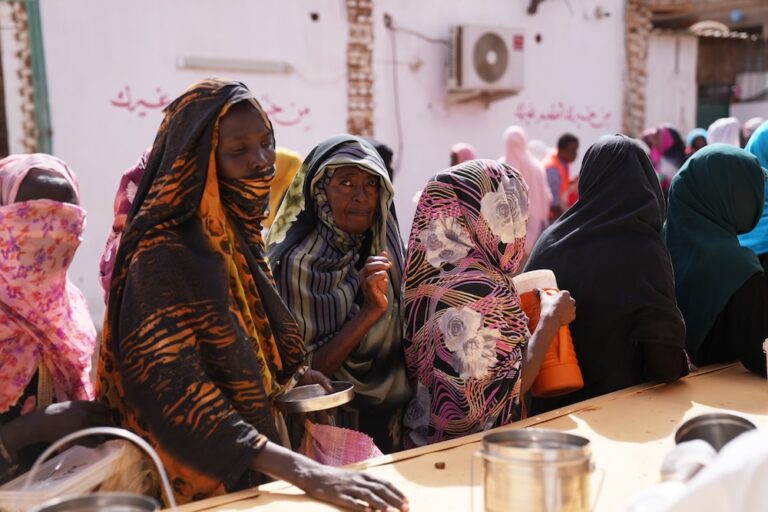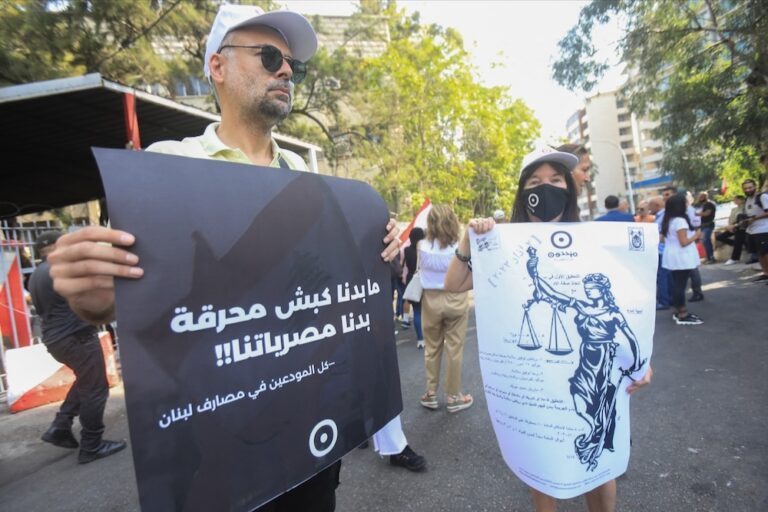The ongoing crackdowns on rights defenders and democracy activists being carried out by Saudi Arabia, Oman and the United Arab Emirates (UAE) were raised before the Council by CIHRS, other international civil society groups, as well as several rights defenders from the Gulf region.
(CIHRS/IFEX) – 2 October 2012 – From 10-28 September, during the 21st Session of the United Nations Human Rights Council (the Council), an unprecedented number of governments from the Arab region came under international scrutiny and criticism for committing serious human rights violations. Arab governments responded with a surge of attacks against human rights defenders who engaged with the United Nations and increased attempts to undermine international human rights standards, according to the Cairo Institute for Human Rights Studies (CIHRS).
Resolutions on the human rights situations in Sudan, Syria and Yemen were all adopted, as well as on South Sudan. The human rights situations within Algeria, Bahrain, Morocco and Tunisia were examined within the framework of the Universal Periodic Review (UPR). Moreover, the ongoing crackdowns on rights defenders and democracy activists being carried out by Saudi Arabia, Oman and the United Arab Emirates (UAE) were raised before the Council by CIHRS, other international civil society groups, as well as several rights defenders from the Gulf region.
“Reflecting the ‘counter-revolutionary’ repression we have witnessed being carried out by many Arab governments against democracy and rights activists over the last year and a half, this session of the Council witnessed multiple human rights defenders from Sudan, the United Arab Emirates (UAE) and Bahrain subjected to attacks by their governments or government-affiliated actors for engaging with the United Nations,” said Mr. Ziad Abdel Tawab, Deputy Director of CIHRS. “We urgently call on the UN and its member states to increase efforts to provide protection for these brave defenders and others like them. Such reprisals against those who cooperate with the UN not only constitute rights violations, but also represent an attack on the UN itself and its ability to function properly.”
This session of the Council began with a special debate on ‘reprisals’ or attacks against those who engage with the UN. Despite this positive initiative by Hungary, we continue to see hesitancy by governments to confront concrete cases of reprisals.
“If UN member states are serious about this issue they must move beyond theoretical discussions and strongly denounce specific attacks,” said Mr. Jeremie Smith, Director of the Geneva Office of CIHRS.
Concerning the adoption of UPR outcomes, this session of the Council saw the Human Rights situation in Morocco, Algeria, Tunisia and Bahrain all examined. While Morocco accepted 128 rights recommendations out of the 140 that were made, it is worrying, that many references to human rights violations against Sahrawi people in Western Sahara made by States during the oral review were not reflected in the report. While some of these references were retained, others were completely removed or stripped of their significance. It is therefore paramount that states not only condemn ongoing violations in Western Sahara but also demand that the HRC be fully informed on the state of rights in the region.
While Tunisia accepted 110 recommendations and rejected three, the situation of journalists and freedom of expression remains of concern and should be monitored, all the more as Tunisia estimates that guaranteeing freedom of expression in its new Constitution is in the process of implementation. Whereas Bahrain and Algeria accepted the majority of the recommendations that were made, the apparent lack of political will to implement past recommendations is striking, evidenced by the continuing grave rights violations carried out in both countries.
The government of Bahrain in particular continues to deny the existence of grave rights violations. During the adoption of the Bahrain’s UPR, despite the well documented imprisonment of Bahraini rights defenders and political opposition figures, the Foreign Minister of Bahrain once again repeated that “political prisoners do not exist in Bahrain.”
This continuing denial of ongoing violations and disregard for the recommendations of the Bahrain Independent Commission of Inquiry bodes ill for those pushing for implementation of the countries UPR recommendations.


